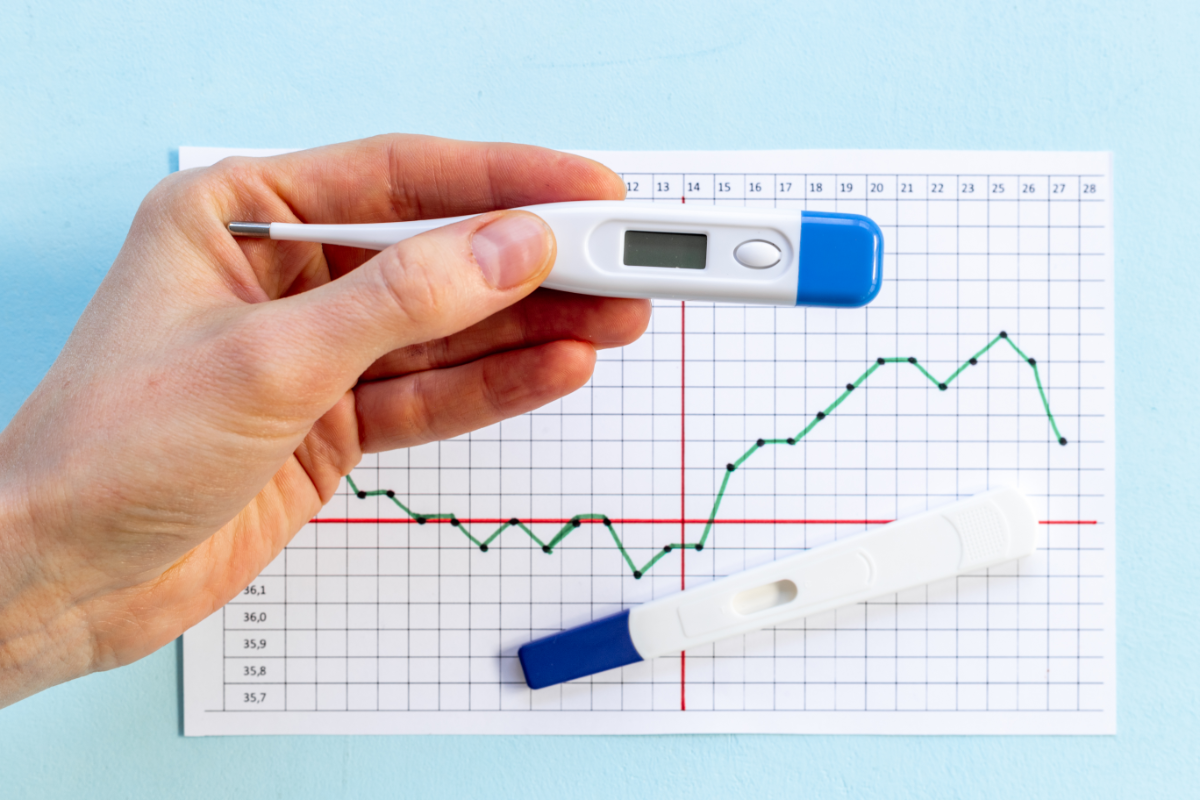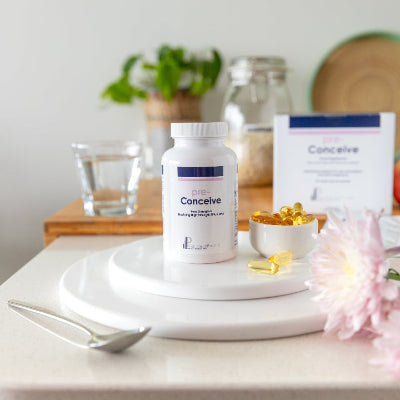Ovulation is a key part of the menstrual cycle. It’s when the ovary releases an egg, making conception possible. But what happens when ovulation doesn’t occur? This is known as anovulation, a common cause of infertility. Let’s dive into what causes it, how to recognise it, and ways to support your body in restoring healthy ovulation.
What Is Anovulation?
Anovulation happens when the ovaries don’t release an egg during the menstrual cycle. While it’s normal to have an occasional anovulatory cycle, persistent anovulation can make getting pregnant difficult. It’s also linked to irregular periods and hormonal imbalances.
Causes of Anovulation
Several factors can disrupt ovulation, including:
- Polycystic Ovary Syndrome (PCOS): A leading cause of anovulation, PCOS affects hormone levels and prevents the follicles from maturing and releasing an egg.
- Hormonal Imbalances: Issues with thyroid hormones, prolactin, or low progesterone can disrupt the hormonal signals that trigger ovulation.
- Excessive Exercise: Over-exercising can lower body fat and disrupt the hormones needed for ovulation.
- Weight Fluctuations: Being underweight or overweight can interfere with the production of key reproductive hormones.
- Stress: Chronic stress affects the hypothalamus, which regulates the hormones involved in ovulation.
- Premature Ovarian Insufficiency (POI): When the ovaries stop functioning normally before age 40, ovulation may stop.
- Other Medical Conditions: Diabetes, eating disorders, and certain medications can contribute to anovulation.
Signs and Symptoms of Anovulation
Anovulation doesn’t always come with clear symptoms, but some signs to watch for include:
- Irregular or Missed Periods: A key indicator that ovulation might not be happening.
- Absent Cervical Mucus: During ovulation, cervical mucus usually becomes clear and stretchy; if this doesn’t happen, ovulation might be absent.
- No Temperature Shift: In a typical cycle, basal body temperature rises after ovulation due to increased progesterone. No temperature rise may suggest anovulation.
- Long Cycles: Cycles longer than 35 days may indicate an issue with ovulation.
- Difficulty Conceiving: If you’re having trouble getting pregnant after several months of trying, anovulation could be a factor.
How to Support Ovulation Naturally
If you suspect anovulation, supporting your body’s hormonal balance is crucial. Here are some strategies to encourage healthy ovulation:
- Balanced Nutrition: Focus on whole foods rich in antioxidants, healthy fats, and key vitamins like B-complex, vitamin D, and iron.
- Maintain a Healthy Weight: Both underweight and overweight conditions can disrupt ovulation. Aim for a balanced, sustainable weight.
- Manage Stress: Stress reduction techniques like yoga, meditation, or therapy can help balance hormones.
- Moderate Exercise: Regular, moderate activity supports hormone health — but avoid excessive high-intensity workouts.
- Supportive Supplements: Nutrients like Magnesium, CoQ10, and omega-3s have been shown to support ovarian function and egg quality.
How pre-Conceive Can Support Ovulation
For those dealing with anovulation, pre-Conceive is a comprehensive fertility supplement designed to support hormonal balance and ovarian function. It contains clinically-backed ingredients like Magnesium, CoQ10, and antioxidants that help regulate cycles, promote egg health, and encourage regular ovulation. By nourishing your body with essential vitamins and minerals, pre-Conceive supports overall reproductive wellness, making it an excellent choice for those struggling with irregular or absent ovulation.
Final Thoughts
Anovulation can be frustrating and disheartening, but understanding the causes and taking steps to support your body naturally can make a difference. Whether you’re trying to conceive or simply want to restore cycle regularity, a combination of healthy lifestyle changes and targeted supplements like pre-Conceive can help get ovulation back on track.
For more information on the topic, the Cleveland Clinic have a page dedicated to the topic here and here, at Parents.






